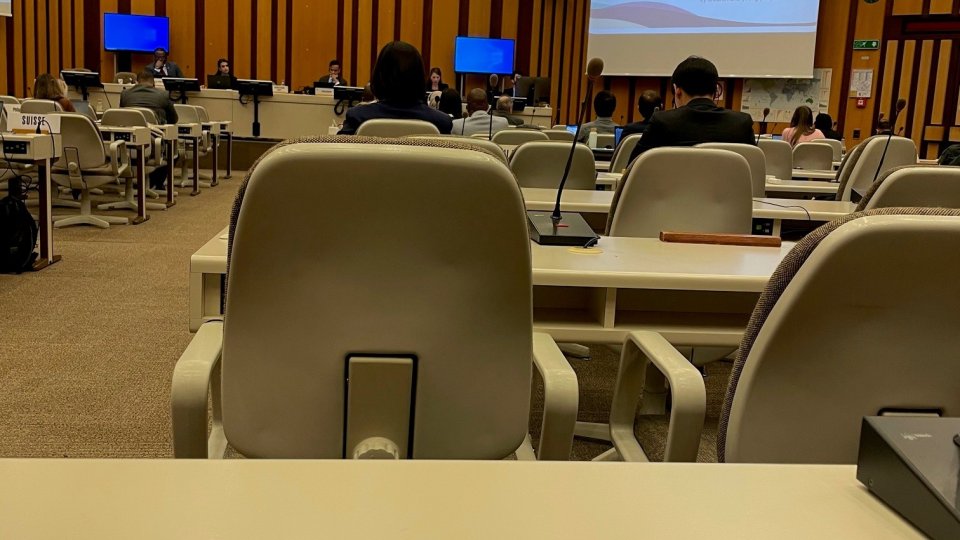SWGfL were pleased to attend and contribute to the Twentieth meeting of the Council Working Group on Child Online Protection at the ITU (International Telecommunication Union). This event hosted in Geneva brought organisations and experts from across the world to discuss contributions and initiatives around child online protection. SWGfL joined an expert line up of speakers including representatives from UNICEF, 5Rights Foundation and the International Centre for Missing & Exploited Children, Europol and nation representatives.
Child Online Protection – Legal Measures
SWGfL contribution focused on technical and legal measures related to child online protection. Boris Radanović (Head of Partnerships and Engagement) discussed the impact of emerging technical standards, for example end-to-end encryption (E2EE), and the impact that these have for child online protection. He spoke about Governments worldwide needing to recognise the urgency of taking action to protect children from various online threats, including cyberbullying, explicit content, child sexual abuse, and predatory behavior.
It was highlighted that legal frameworks emphasise the shared responsibility of technology companies, service providers, policymakers, parents, and users in creating a safer online environment for children whilst data protection and privacy laws play a crucial role in safeguarding personal information, especially that of children. National initiatives, collaborating with international organisations, focus on awareness campaigns, reporting mechanisms, and law enforcement cooperation can also collectively work towards combatting child exploitation online.
End to End Encryption
End to end encryption was discussed in great length highlighting the benefit it can bring towards privacy and security, but stressing the challenges it creates for law enforcement and child protection advocates to detect and remove harmful content such as child sexual abuse material.
The ongoing discourse on E2EE emphasises the need for a nuanced approach that ensures both online privacy and child safety. It was stressed that organisations dedicated to child protection find themselves at a critical juncture, facing challenges in identifying and eliminating child sexual abuse content due to encrypted channels. Stricter regulations may require increased cooperation between technology firms and law enforcement agencies.
David Wright (CEO of SWGfL) said:
‘’We all have a shared responsibility in addressing these challenges collaboratively, fostering dialogue among technology innovators, policymakers, child protection organisations, and others. It is crucial to find solutions that uphold individual privacy while prioritising online protection efforts first and foremost. End to end encryption was created with privacy and safety in mind but there are significant, alarming concerns that must be addressed and resolved. The call is for a collective effort to create a better world for all children, balancing technological innovation, privacy, and the imperative need to protect everyone online.’’
Susie Hargreaves (CEO of IWF) said:
“We have long been concerned about the impact end-to-end encryption will have for the protection of children online. In December, Meta, the parent for company for two of the largest social media platforms in the world, Instagram and Facebook Messenger announced it would be end-to-end encrypting these services globally in the coming months. This will have catastrophic impacts for child protection, with the potential of losing 21 million reports of child sexual abuse.”
“This is against the backdrop of a worsening situation online when it comes to the proliferation of child sexual abuse material. In 2023, the IWF removed a record 275,000 webpages from the internet and dealt with over 390,000 reports of suspected child sexual abuse material. Both figures represented a 5 and 8% increase respectively in the amount of content that was removed and assessed in 2022. We urge other companies not to follow Meta’s dreadful example.”






